
ETHICAL
Communication
Moral Stances in Human Dialogue
Edited by
CLIFFORD G. CHRISTIANSAND JOHN C. MERRILL
University of Missouri Press
Columbia and London
University of Missouri Press
Columbia and London
Copyright 2009 by
The Curators of the University of Missouri
University of Missouri Press, Columbia, Missouri 65201
Printed and bound in the United States of America
All rights reserved
5 4 3 2 1 13 12 11 10 09
Library of Congress Cataloging-in-Publication Data
Ethical communication : moral stances in human dialogue / edited by Clifford G. Christians and John C. Merrill.
p. cm.
Includes bibliographical references and index.
Summary: Communication ethics are approached from five perspectives--altruistic, egoistic, autonomous, legalist, and communitarian--in essays examining the thought of major thinkers ranging from Aristotle to the Dalai Lama. Each profile provides insight into how important ethical concepts can help the modern communicator--Provided by publisher.
ISBN 978-0-8262-1839-1 (cloth : alk. paper)
ISBN 978-0-8262-1846-9 (pbk. : alk. paper)
1. Conduct of life. 2. Ethics. I. Christians, Clifford G. II. Merrill, John Calhoun, 1924
BJ1521.E84 2009
175dc22
2008055784
 This paper meets the requirements of the American National Standard for Permanence of Paper for Printed Library Materials, Z39.48, 1984.
This paper meets the requirements of the American National Standard for Permanence of Paper for Printed Library Materials, Z39.48, 1984.
Design and Typesetting: Kristie Lee
Printing and Binding: Integrated Book Technology, Inc.
Typefaces: Minion and Eurose Heavyface
The University of Missouri Press gratefully acknowledges the support of the Missouri School of Journalism in the publication of this book.
ISBN 978-0-8262-7184-6 (ebook)
Contents
CLIFFORD G. CHRISTIANSAND JOHN C. MERRILL
JOHN C. MERRILLUniversity of Missouri, Emeritus
MARY HULSTCalvin Theological Seminary
RAPHAEL COHEN-ALMAGORUniversity of Hull
LEE WILKINSUniversity of Missouri
WILLIAM BABCOCKSouthern Illinois University
JANICE HUMEUniversity of Georgia
LEE ANNE PECKUniversity of Northern Colorado
CLIFFORD G. CHRISTIANSUniversity of Illinois
JOHN C. MERRILLUniversity of Missouri, Emeritus
DAVID J. GUNKELNorthern Illinois University
JOHN C. MERRILLUniversity of Missouri, Emeritus
JOHN C. MERRILLUniversity of Missouri, Emeritus
STEPHANIE CRAFTUniversity of Missouri
PATRICK LEE PLAISANCEColorado State University
RONALD C. ARNETTDuquesne University
RONALD C. ARNETTDuquesne University
MAURINE BEASLEYUniversity of Maryland
LEE ANNE PECKUniversity of Northern Colorado
MOHAMMAD A. SIDDIQIWestern Illinois University
LEE ANNE PECKUniversity of Northern Colorado
WILLIAM BABCOCKSouthern Illinois University
STEPHEN J. A. WARDUniversity of WisconsinMadison
VIRGINIA WHITEHOUSEWhitworth University
LEE WILKINSUniversity of Missouri
JON BEKKENAlbright College
LEE WILKINSUniversity of Missouri
DAVID S. ALLENUniversity of WisconsinMilwaukee
RONALD C. ARNETTDuquesne University
Introduction
CLIFFORD G. CHRISTIANS AND JOHN C. MERRILL
In the postmodern world of shifting norms and displeasure with the idea of objectivity, there is a need for some stable concepts and identifiable stances. Without them, no fruitful dialogue on ethics can occur. In an era when ethical issues are more urgent than ever, the need for such a resource is a pressing one. The editors of this book hope that by presenting such moral perspectives within a five-stance typology, useful schema will emerge for seeking the right actions. Rather than give up on moral thinking in our day, the profiles of moral thinkers within this collection challenge us to take seriously the abundance of good ideas in ethics that the human race provides us. The profiles speak to real life struggles, but have the lasting quality of foundations. Many of the root values to which they appeal are cross-cultural and some are universal.
The five ethical perspectives exemplified on the following pages by two dozen moral mentors should provide seminal ideas for the communicators of today who desire improved discussion and social progress. Ethics has widespread roots that twist and turn around the globe, but all lead (some more directly than others) to the nourishment and preservation of a huge moral tree. What these moral teachers expound for us is diversity of means to the universal ends of personal and social betterment.
We have chosen to look at leaders who represent five different approaches to ethics. The profiles of these moral theorists presented here are superficial, of necessity. They only serve to focus the reader on the basic rudiments of individual ethical perspectives. It is true that in some respects all the ethicists thinking goes beyond the category . There is a Confucian virtue-emphasis in Aristotle; and in their appeal to reason and self-interest, Ayn Rand and Aristotle have much in common. There are many similarities in the peaceful approaches of the Dalai Lama and Gandhi.
The editors do not want these five categories or stances to be closed or inviolable, but to serve as broad ways of looking at dominant ideas in moral and religious philosophy. For one can be predominantly an altruist and at the same time have egoist proclivities. And one can be, and probably is, a communitarian and an altruist at the same time. The affinities and differences among these thinkers are numerous, and the profile-writers get into many of them. But we believe that the five-stance typology we present here will be useful in giving todays ethicists an engagement with the foundations of morality. Comparison and difference are productive learning tools; organizing individual ideas into general categories provides one framework for making linkages among divergence.
Louis Hodges follows a similar overview of the field, and also classifies ethics into five domains. In his view, valid moral judgments ultimately are based on virtue (Aristotle), love (Jesus), rights (Locke), duty (Kant), or results (Mill). Over the history of ideas, these five are the bases which have been chosen to anchor ethical systems. While each has legitimacy in terms of its own internal rationale, no one alone answers the issues conclusively. Hodges argues for using multiple theories in order to give nuance and complexity to ethical thinking, similar to a triangulation strategy that approaches problems from various angles of vision.
With typologies such as these, one sees the breadth and depth of ethics as a whole, and it challenges us to critique our personal perspective against its alternatives. This introduction to the history of ethics helps us build on the past without repeating it. Many of our struggles today are ongoing problems on the human agenda which we can address more competently when the wisdom of informed others is at hand. Embodying the concepts and issues through real people communicates more effectively than abstractions do, and therefore makes the wealth of ideas in human history more accessible.
Next page
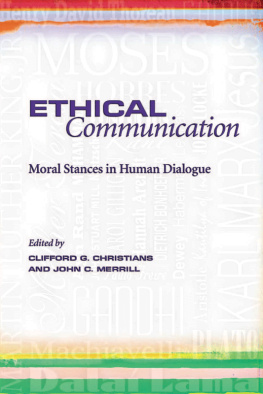

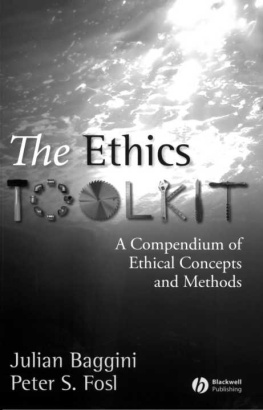
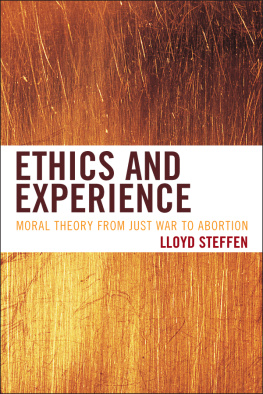
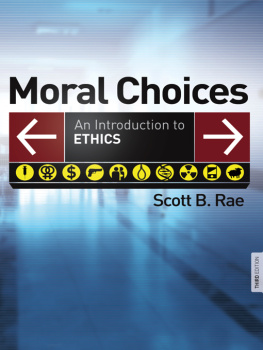
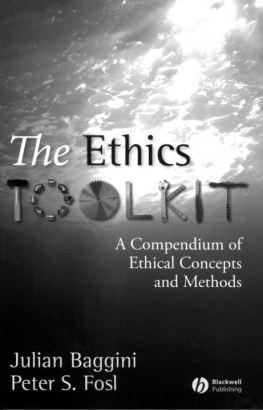
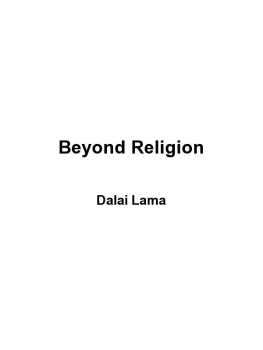

 This paper meets the requirements of the American National Standard for Permanence of Paper for Printed Library Materials, Z39.48, 1984.
This paper meets the requirements of the American National Standard for Permanence of Paper for Printed Library Materials, Z39.48, 1984.